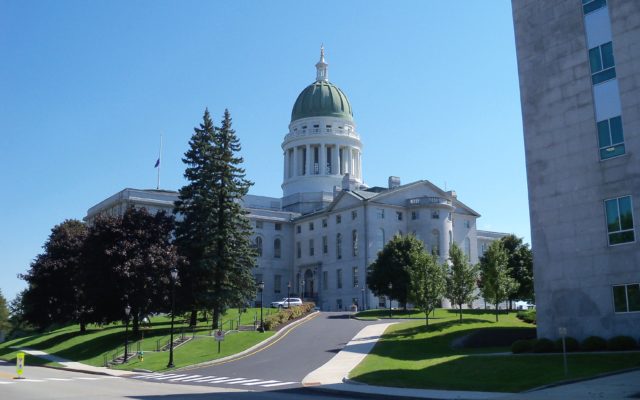
‘Right to repair’ question completes Maine’s busy 2023 referendum slate
By Michael Shepherd, Bangor Daily News Staff
AUGUSTA — A “right to repair” referendum qualified for Maine’s 2023 ballot on Feb. 21, joining three other questions with their origins in long-running public relations problems for the state’s biggest electric utility.
It adds up to the busiest referendum slate here since 2018. That was during an era of divided government under former Gov. Paul LePage, when referendums were waged to enshrine liberal priorities that he blocked, including Medicaid expansion and minimum wage increases. Democrats have controlled Augusta under Gov. Janet Mills since that year.
While that has led to fewer frustrated priorities among liberals, two of her vetoes led to two 2023 referendum drives that spun out of dissatisfaction with Central Maine Power Co. The related campaigns have dominated the $14.5 million in fundraising for ballot question efforts as of 2022’s end.
The right-to-repair question, which made the ballot on Feb. 21, is a different battle between competing industries. In response to rapid changes in the automotive industry toward proprietary software in new vehicles, it would force manufacturers selling vehicles in Maine to make information available to vehicle owners and independent repair shops.
It follows a Massachusetts effort passed by a whopping 75 percent of voters in the 2020 election, although the law lingers unimplemented after a federal lawsuit from the automotive industry. Auburn-based VIP Tires and Service is a key backer of the effort, which has been almost fully funded by $1 million from a national group representing it and other repair shops.
“Automakers are increasingly using technology to try to shut out local independent car repair shops and automotive technicians from repairing the newest models of cars and trucks,” Tim Winkeler, VIP’s CEO, said in a statement.
The automotive industry has not begun spending in Maine yet, but it threw $25 million into the Massachusetts effort. It has fired back by saying the law is unnecessary and that repair shops want access to data in order to sell products more easily.
“Unlimited access by national aftermarket manufacturers and retailers to your vehicle telematic data is not right to repair,” the Alliance for Automotive Innovation, which represents auto manufacturers including Ford, General Motors and Toyota, said in a statement.
The right-to-repair question qualified for the ballot after Secretary of State Shenna Bellows’ office said it got nearly 75,000 valid signatures from Maine voters. The Legislature will get a chance to consider the measures later this year, but it usually sends them to the ballot.
The main CMP-linked question is the most hotly contested of the bunch. It would force billions in borrowing to fund a quasi-public takeover of the utility’s infrastructure and that of Versant Power, the state’s No. 2 electric provider. CMP’s parent fought back at that referendum by getting its own question on the ballot that would subject that borrowing to yet another vote.
Parents of the two companies poured $12.9 million into all of their political committees by the end of last year, while Our Power, the grassroots group fronted by former House Majority Leader Seth Berry, D-Bowdoinham, raised $550,000 to try to pass the utility takeover.
The battle over the $1 billion CMP corridor, which was rejected by Maine voters in 2021 and remains in limbo due to court proceedings, also prompted a fourth question on this year’s ballot that would bar companies owned by foreign governments from spending on elections here and urge Congress to ban foreign contributions in elections across the country.
It came out of the campaign over the corridor, in which CMP’s partner on the project, the provincial-owned Hydro-Quebec, spent $22.4 million to try to preserve it. The campaign is run by Sen. Rick Bennett, R-Oxford, who leads a political group that has raised just over $500,000 so far. Versions of both the Berry- and Bennett-led proposals were vetoed by Mills, which led them to go after the ballot initiatives.